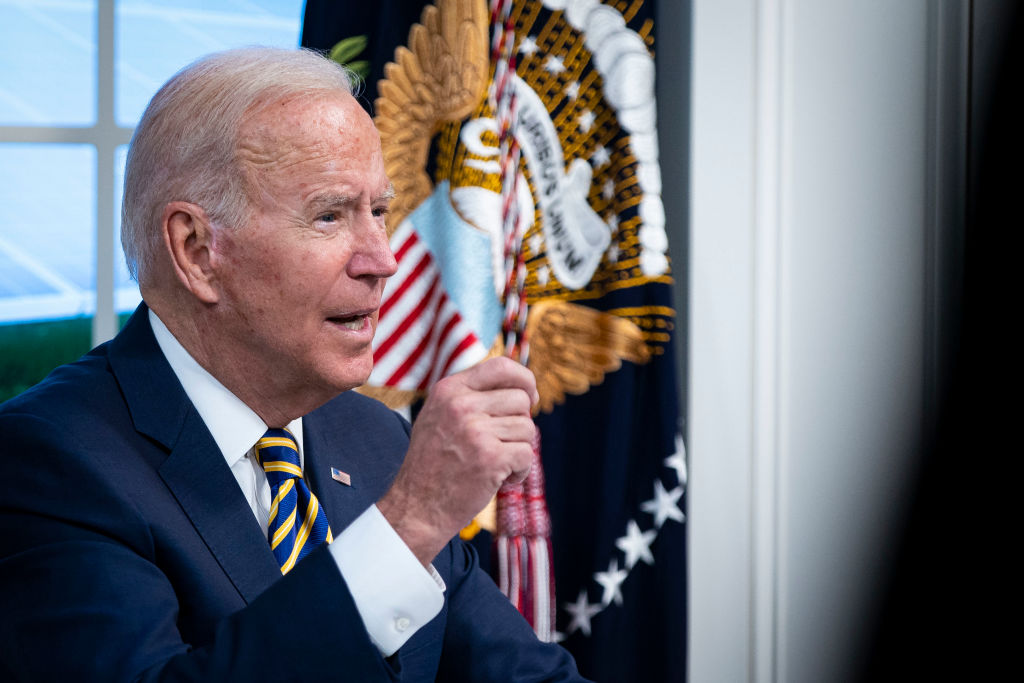A group of Republican senators has introduced legislation to stop plans by Democrats to expand Internal Revenue Service access to American banking transactions they argue violate taxpayer rights and privacy.
“Unfortunately, [President Joe] Biden and his team have ignored, or sometimes celebrated, the violation of taxpayer privacy and want to create an intrusive IRS,” Oklahoma Republican Sen. James Lankford said in a statement released on Tuesday.
“Our solution forces the IRS to protect taxpayers from regular IRS monitoring of their bank accounts, targeting based on their private beliefs, and the political weaponization of the IRS. Oversight and transparency are critical to a well-functioning government that works for the American people,” he added.
Lankford also took to Twitter on Monday to express concerns regarding the newly proposed invasions of privacy.
He said the president “wants the IRS to regularly monitor the bank accounts of Americans,” and he and Idaho Republican Sen. Mike Crapo were working to stop that from happening.
Biden and his team have ignored or sometimes celebrated the violations of taxpayer’s privacy.
Now he wants the IRS to regularly monitor the bank accounts of Americans.
@MikeCrapo & I are trying to prevent this overreach & politicization of the IRS.https://t.co/gYJytKKWQM— Sen. James Lankford (@SenatorLankford) September 20, 2021
“In light of recent proposals to massively expand the IRS, with unprecedented amounts of mandatory funding, and the IRS’s continued abuses of taxpayer rights and privacy, any additional IRS funding and monitoring of Americans’ private finances must come with guardrails to help protect against abuses,” Crapo said in the statement.
“This legislation places important guardrails around IRS funding to protect taxpayers’ rights and privacy,” the senator said.
The new Democratic-led legislation also would add an expected 80,000 new IRS workers, as noted by Texas Republican Rep. Kevin Brady, who joined the GOP effort.
“Before American taxpayers are subjected to 80,000 new IRS agents and surveillance of their private bank accounts, let’s begin with an accurate, independent estimate of Treasury’s so-called ‘tax gap,’” Brady said in a statement.
“This bill also protects taxpayers from IRS targeting based on their political or religious beliefs and closes loopholes that risk leaking private taxpayer returns,” he said.
“Under the guise of closing the ‘tax gap,’ Democrats are seeking to increase IRS funding by a massive $80 billion over the next 10 years to expand ‘enforcement and compliance activities’ at the IRS, and to create a ‘comprehensive financial account information reporting regime,’ under which gross inflows and outflows of taxpayers’ financial accounts are reported by financial intermediaries to the IRS, effectively acting as IRS agents,” the Republicans’ news release said.
Other GOP senators signing onto the legislation were John Barrasso of Wyoming, Mike Braun of Indiana, John Boozman of Arkansas, Bill Cassidy of Louisiana, Kevin Cramer of North Dakota, Lisa Murkowski of Alaska, Mike Rounds of South Dakota, Marco Rubio of Florida, Thom Tillis of North Carolina and Todd Young of Indiana.
The Tax Gap Reform and Internal Revenue Service Enforcement Act would protect taxpayers against Democrats’ efforts to watch Americans’ bank accounts, monitor taxpayer finances in a surveillance dragnet and provide massive additional funding IRS agents.
“Many Americans are understandably concerned with the IRS’s long history of overreach and ideological bias. Democrat proposals to dramatically increase IRS funding while engaging in new surveillance efforts pose a serious threat to taxpayers’ rights and privacy,” Rubio said in a statement.
“This legislation takes steps to ensure that taxpayers are protected,” the senator added.
The Democrat plan to decrease the tax gap seeks to increase IRS funding by a massive $80 billion over the next 10 years to expand “enforcement and compliance activities” at the IRS, and to create a “comprehensive financial account information reporting regime,” Rubio said.
Groups supporting the Republican-backed bill include the National Taxpayers Union, Americans for Tax Reform and the Center for a Free Economy.
This article appeared originally on The Western Journal.

























 Continue with Google
Continue with Google